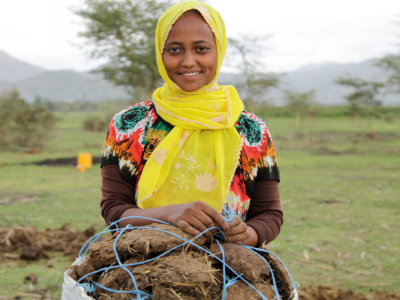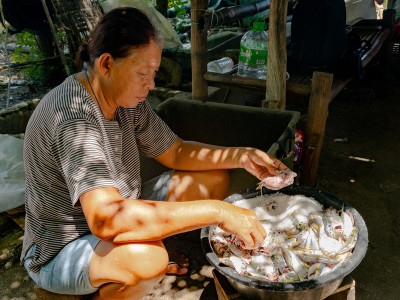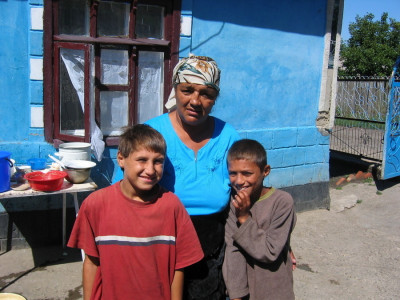Safer remittances and improved livelihoods project (SRIL)
Related Sustainable Development Goals and Global Compact for Migration Objectives
Summary
This project comes from the JMDI Phase II, a UN Joint Migration and Development Initiative, run in cooperation by IOM, UNDP, ILO, UN Women, UNFPA, UNITAR which took place from 2012 to 2017 and worked to improve the skills of migrant workers and their families.
Due to a lack of economic opportunity in the Surkhet and Kailali districts, these districts can be characterised by frequent emigration. Yet a lack of secure ways to send back remittances or bring savings home, coupled with the contracting of dubious loans in order to be able to embark on their migration journey, make it extremely difficult for families to lift themselves out of poverty. It is within this context that Oxfam in Nepal started the project entitled “Safer Remittances and Improved Livelihoods” (SRIL), which aimed at fostering more effective remittance sending and usage in order to improve livelihoods. Overall, through the SRIL project, the economic wellbeing of migrant workers and their families was strengthened in the two districts of Kailali and Surkhet.
The SRIL project focused on improving the skills of migrant workers and the financial literacy of their families, which enabled the migrants to search for better employment opportunities and the entire family better manage their finances and invest this in income-generating activities. To achieve this, the project partners introduced a door-to-door remittance transfer practice and conducted awareness raising and training programmes that facilitated the establishment of local micro-finance structures and cooperatives.
Key objective
The main aim of this project is improving the skills of migrant workers and their families. This will enable them to search for better employment opportunities, manage their income and start their own income-generating activities.
Main activities
The main activities of the project included:
- Provision of financial literacy to beneficiaries
- Skills training and entrepreneurship development to promote the sustainable economic inclusion of migrants
- Providing financial literacy trainings to the families dependent on remittances
- Increasing the awareness of migrants and households on economic inclusion through migrant specific financial products and mechanisms offered by financial institutions in the targeted districts
Key successes or innovative factors, good practices and lessons learned (if available)
The key lessons learned of this projects are outlined below:
- Financial literacy is an essential aspect for the successful promotion and usage of financial tools and products for harnessing the development impact of remittances.
- Needs assessments are necessary to design effective financial literacy training and financial products and must also involve migrants and their families both in the origin and destination territories.
- Financial literacy should target both migrants and their families and the trainings should be interactive based on real life examples.
- Participation of the senior family members or household heads in financial literacy training is crucial.
Beneficiaries
The direct beneficiares of the project "Safer remittances and improved livelihoods project (SRIL)" are the families of seasonal Nepali migrants to India and the migrants themselves.


